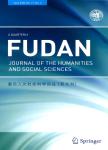Two Translations of Ji Yun's Close Scrutiny: the Translator, the Reader and the Settings of Translation
Two Translations of Ji Yun's Close Scrutiny: the Translator, the Reader and the Settings of Translation作者机构:Department of Translation Lingnan University 8 Castle Peak Road Tuen Mun New Territories Hong Kong
出 版 物:《Fudan Journal of the Humanities and Social Sciences》 (复旦人文社会科学论丛(英文版))
年 卷 期:2017年第10卷第1期
页 面:103-116页
学科分类:050201[文学-英语语言文学] 071010[理学-生物化学与分子生物学] 05[文学] 081704[工学-应用化学] 07[理学] 08[工学] 0501[文学-中国语言文学] 0303[法学-社会学] 0710[理学-生物学] 0502[文学-外国语言文学] 1301[艺术学-艺术学理论] 0101[哲学-哲学] 0817[工学-化学工程与技术]
主 题:Random Jottings at the Cottage of Close Scrutiny (阅微草堂笔记) Translation - Sinology Translating Chinese literature
摘 要:This article focuses on two English translations of Ji Yun's 纪昀 eigh- teenth-century collection of "stories of the strange," Random Jottings at the Cottage of Close Scrutiny (Yuewei caotang biji 阅微草堂笔记). The translation done by Leo Tak-hung Chan is set within the context of his 1998 sinological monograph, while David Pollard's recent translation, published in 2014, stands as an edited volume of translation oriented toward the general reader. Referring to textual and paratextual elements in these two translations, I hope to show how the "setting" of a translation modulates its tone and message, which in turn unfolds with the selection, style and overall structure of the translation. I also draw from an actual dialog between Leo Chan and David Pollard, which evolves around the various aspects in translating Ji Yun's work and the more general issues in sinology and translating Chinese literature. The dialog between the two translators of Ji Yun further illustrates the translators' approaches to the original text, their mediating efforts toward crosscultural readability and literary felicity and specifically, how the state of mind of a translator might come into play with the "flavor" of a translation.



